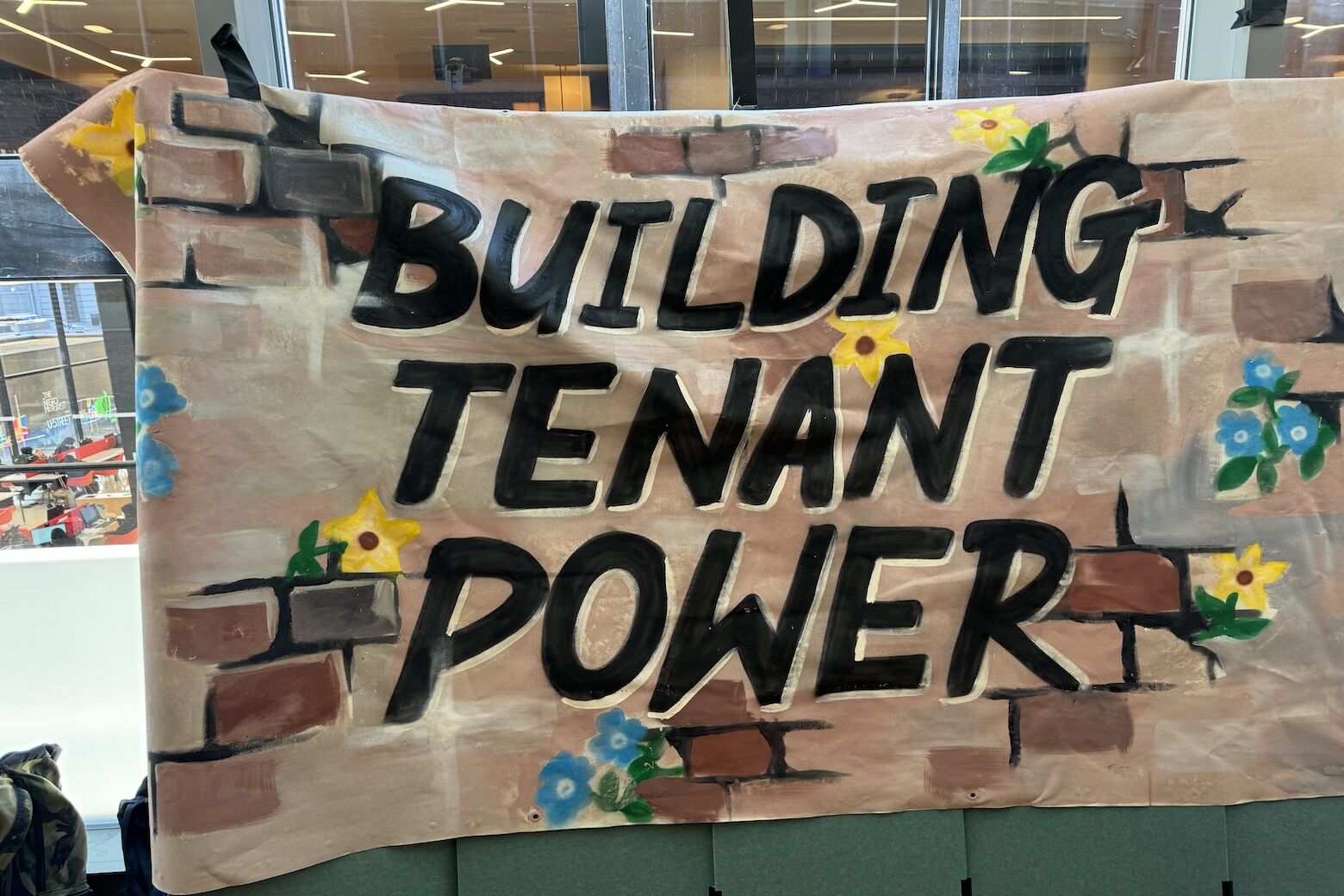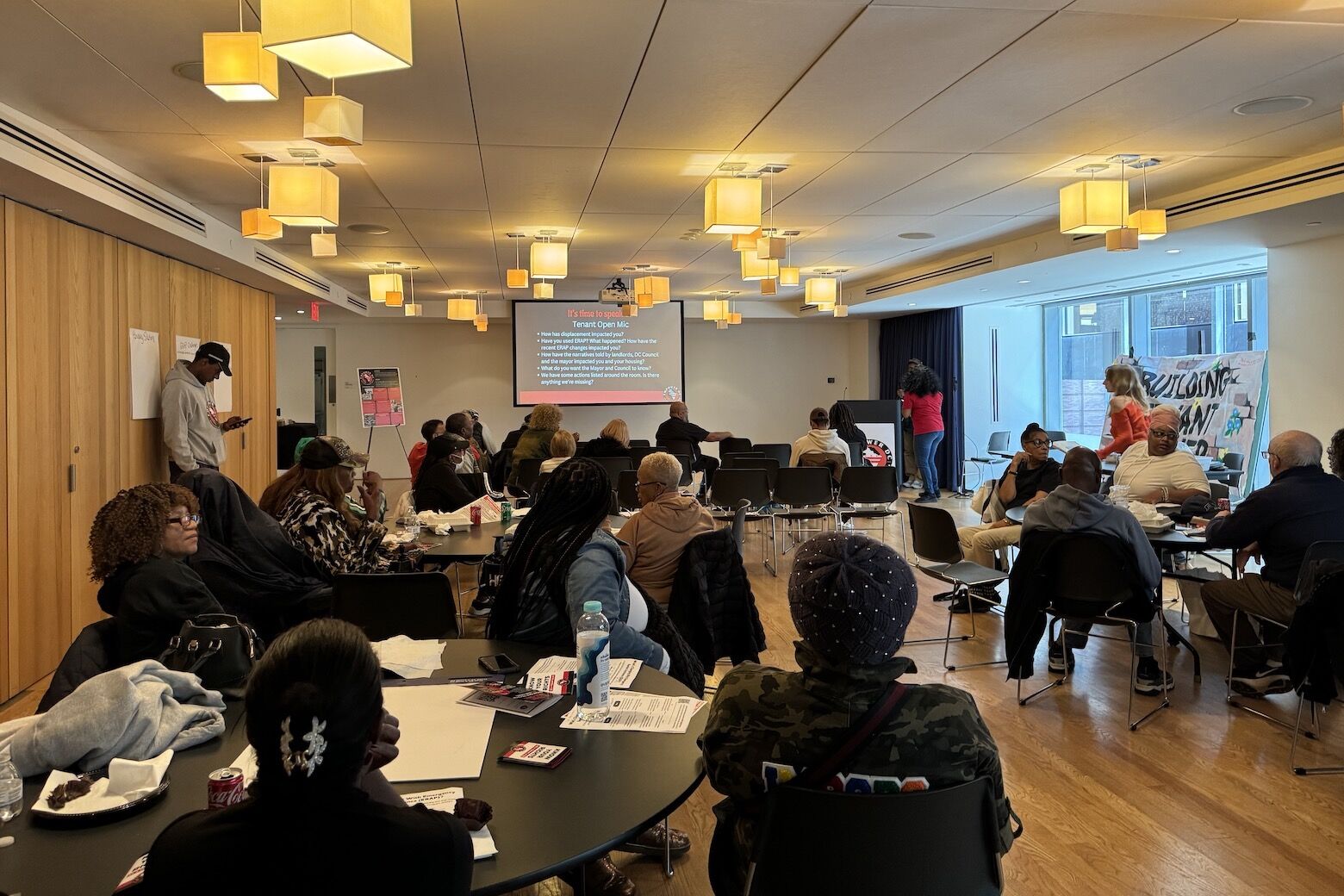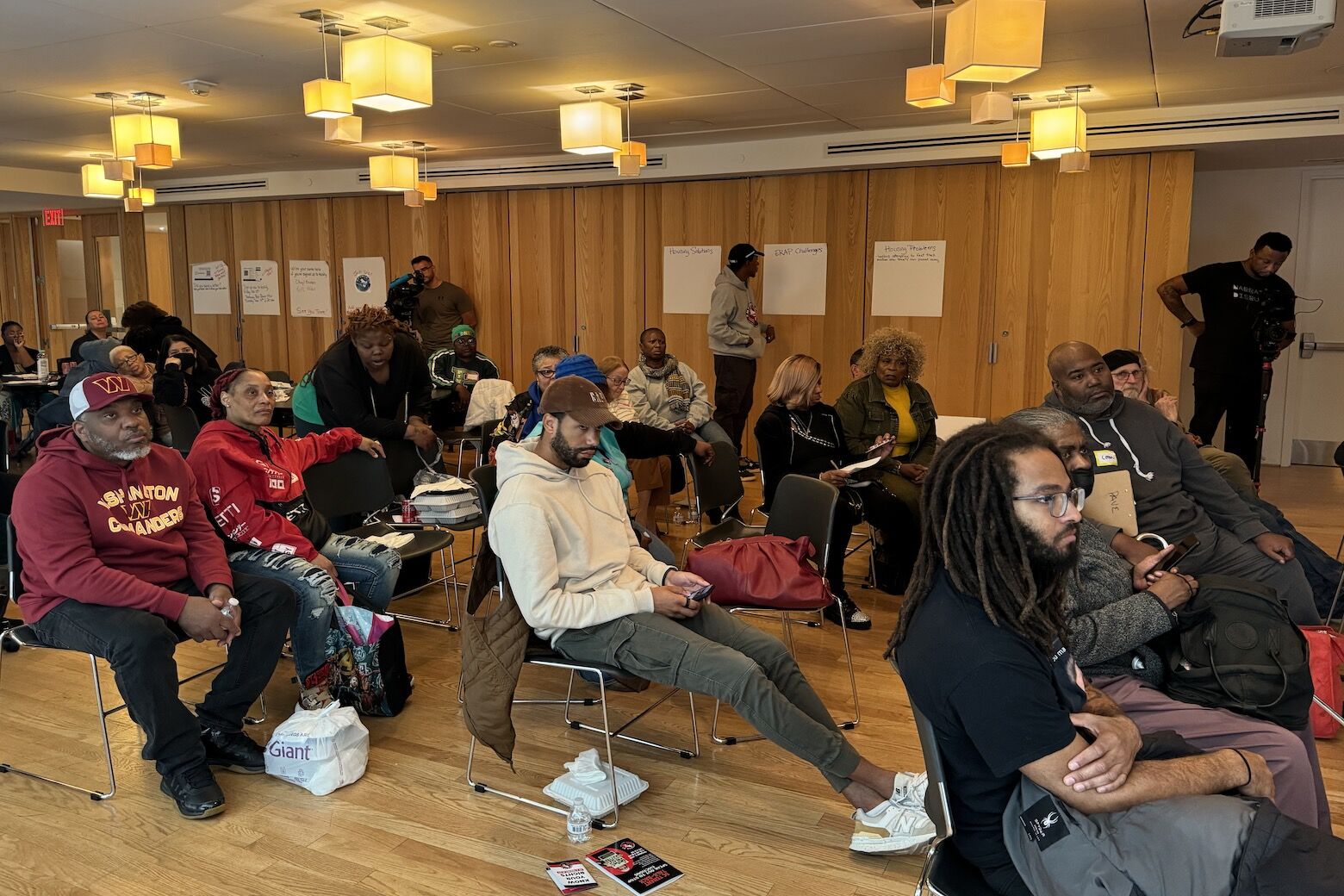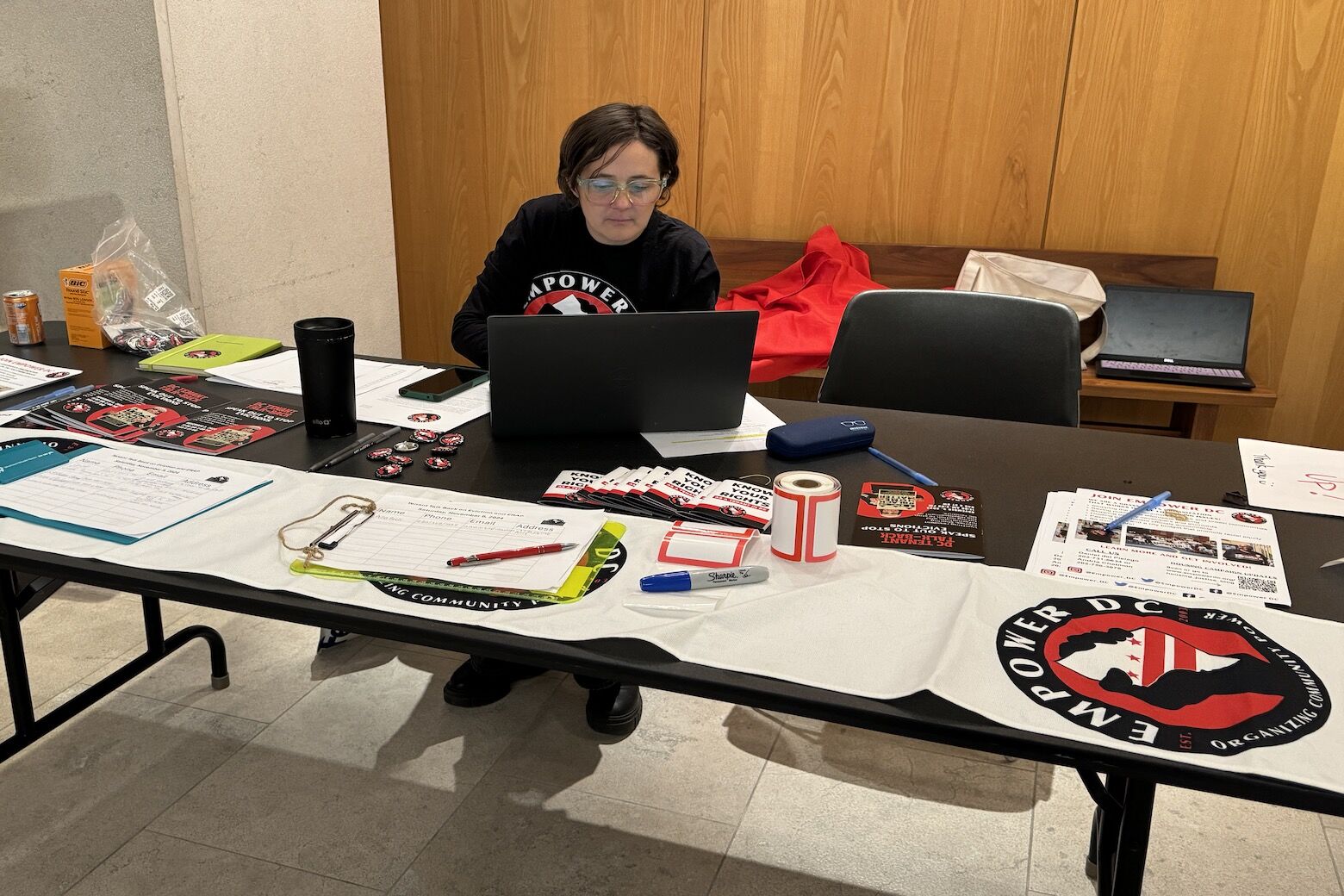







Low-income D.C. renters gathered in a downtown church auditorium on Saturday afternoon to plead for help.
One by one, the men and women took the microphone and spoke out about their plight. The District government has sharply cut back on emergency rental assistance. It has temporarily restricted which residents qualify for the assistance, as a result, many of them are facing the threat of eviction.
“I’m here because I’m facing eviction,” said Melvine Perkins, of D.C. “I have been at the door, knocking, knocking, knocking, knocking for help, and I can’t get any help, and I’m facing eviction … and I have been in this ERAP abyss of fighting to get help while I’m looking for a job.”
The renters were brought together by a community organizing group called Empower D.C., whose staff is helping train the renters to testify on Friday, Nov. 15 to the D.C. Council, in a hearing on the Emergency Rental Assistance Program.
“ERAP, I applied for it, I was approved, and my landlord sent all the paperwork, and they said they never got it, so they denied me, and now I’m so far behind my rent, it’s hard for me to catch up,” said Keith Holder, a D.C. resident. “I do have two job interviews for next week, but once I get the job, I’m still going to owe back rent.”
Holder said he’s afraid that he’ll come home one day to find his furniture out on the street.
On Saturday, more than 50 renters, stepping up to the auditorium microphone and looking out over an audience, had the chance to try out the remarks they’re expected to deliver Friday at D.C. Council chambers.
“There’s a huge need for rental assistance, and one of the biggest issues is that the budget was cut and there’s not enough … Rental assistance is a stopgap to prevent homelessness,” said Farrah Fosse, community development director at Empower D.C.
Friday’s council hearing will discuss whether to make a temporary law permanent that changes how applicants receive assistance and removes protections that prevented evictions.
The temporary law changed the requirements to apply for assistance. Applicants need to provide documents or explain the emergency in writing. To qualify, the emergency needs to be something unexpected, whereas before it could be a situation the renter knew was coming and documentation wasn’t required.
That law also made changes around when evictions are allowed. Now, an eviction can move forward even if a renter has applied for assistance and is waiting for the application to process. A judge may grant one “stay” in the eviction case but is not required to.
Landlords can schedule evictions unless the resident has been approved for assistance that would cover unpaid rent.
Under the previous law, pending assistance applications would prevent landlords from evicting residents and eviction cases in court would also be on hold.
The Emergency Rental Assistance Program was funded at $63 million last year, but an emergency bill cut the funding to $27 million this year. That means fewer residents will receive assistance.
Fosse wants the bill amended to make improvements to the emergency rental assistance program.
“What we want is for them to at least fix up this legislation … they can fix up the court process … the court process could be more efficient, and part of what they could do is have better timelines on the ERAP process — they could encourage landlords to submit their paperwork on time,” said Fosse. “They could encourage Department of Human Services to process claims faster. So there’s a lot that could be done outside of just penalizing tenants.”
Editor’s note: This story has been updated to clarify Friday’s council hearing will not cover the program’s funding, but will discuss whether to make temporary changes to the program permanent.
Get breaking news and daily headlines delivered to your email inbox by signing up here.
© 2024 WTOP. All Rights Reserved. This website is not intended for users located within the European Economic Area.








